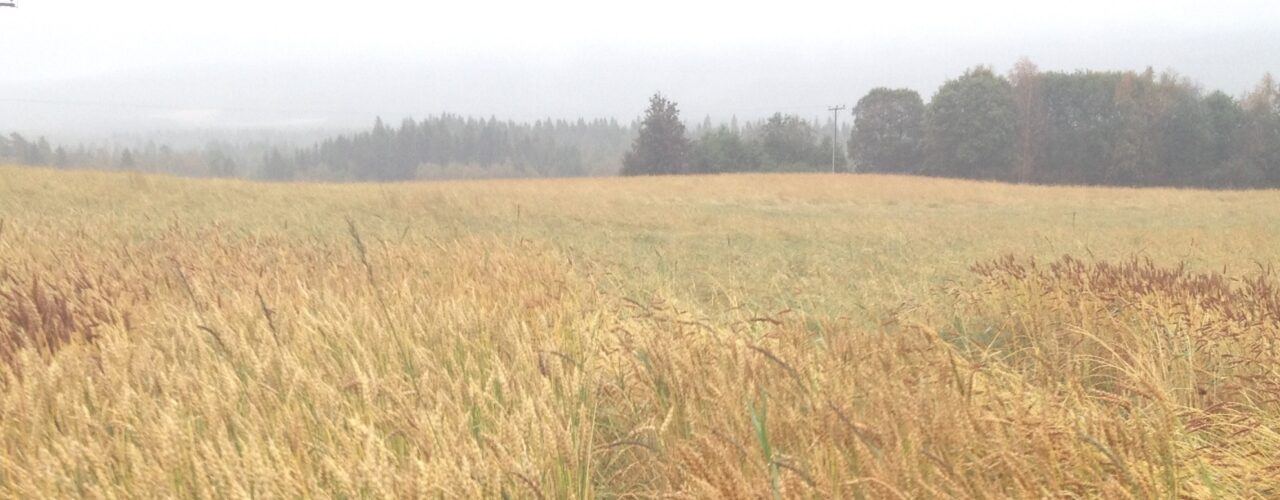
Organic seed grains (Seedgrains)
This project aims to increase the quality, and diversity, of organically grown seed grains. Old and new wheat cultivars, breeding lines and populations from several crosses between breeding lines are grown in field experiments.
The project “Organic seed grains” is a spin-off from the former project “Quality grains for food – the potential of non-commercialized Norwegian varietal material” (2016-2019). Whereas that project was aimed at the value chain for organic bread cereals in Mid-Norway, this project will engage in challenges faced by organic cereal growers in all of Norway. We aim for better quality, and larger diversity of organic seed grains by disseminating knowledge about variety development and how to grow and produce high-quality, healthy seed. The dry season of 2018, with very low cereal yields, was a reminder that such knowledge is required in a food security perspective.
Further, the project will support commercial activity by informing about possibilities within national regulations to broaden the offer of varieties for organic growing, and how small-scale distribution of seed grains may be established. We will study how active selection of equally large grain seeds by air-separation may affect seed quality, and if such selection will affect the adaptation of wheat populations originating from crosses made by Graminor. The project cooperation utilises a network between growers, advisors, milling industry, breeding, seed distribution companies and public government organisations which was established in the previous project. In 2019, organic field experiments were carried out at two sites in Vestfold and two in Trøndelag. Similar experiments will be carried out in 2020 and 2021, and seed separation and selection in the populations will be added as research questions. The experiments comprise following accessions: Dala landhvete (land race), Runar, Seniorita, Mirakel, two breeding lines (GN06557 and GN17635) and four populations from Graminor. The populations are crossed from several very different breeding lines as well as Norwegian varieties such as Bjarne, Krabat and Mirakel.

